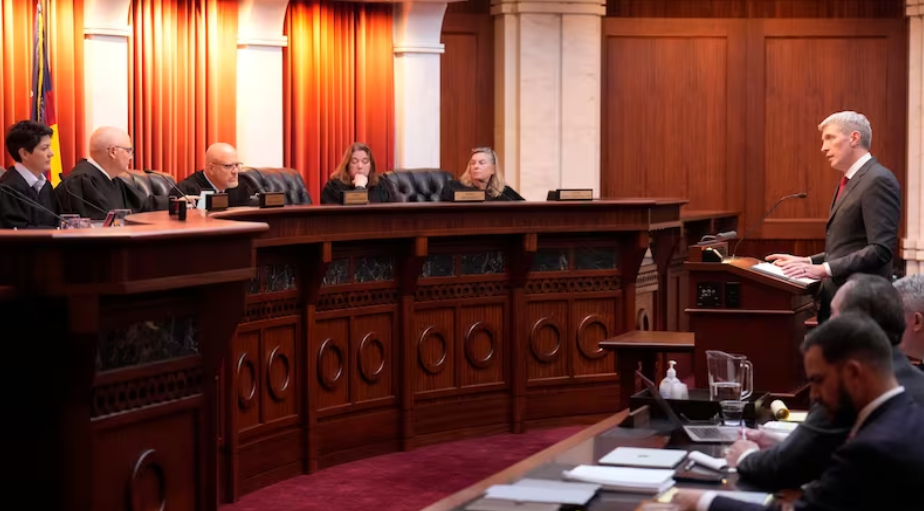Democracy Tested: Colorado Bans Trump from 2024 Primary Ballot
Article by Saja Hassan, TPT Staff Writer
On December 19, 2023, the Colorado Supreme Court made a historic ruling, deciding that Donald Trump would not appear on the state's Republican primary ballot. The landmark decision was based on Section 3 of the 14th Amendment, which bars insurrectionists from holding office. On January 6, 2021, two months after the defeat of the 45th United States president Donald Trump in the 2020 presidential election, a mob of his supporters attacked the U.S. Capitol Building in Washington, D.C. The heavily armed, Trump-incited mob attack of Jan. 6, 2021, was an attack not just on the U.S. Capitol building, but also on democracy and the rule of law. The Colorado justices rejected Trump’s lawyers claim that the mob was not insurrection, but instead "amply established that the events of January 6 constituted a concerted and public use of force or threat of force by a group of people to hinder or prevent the U.S. government from taking the actions necessary to accomplish the peaceful transfer of power in this country." The justices believe that by allowing Trump on the primary Republican ballot will present the United States as a country that allows candidates to run even when proven to be unconstitutional.
Colorado Supreme Court investigating ‘insurrectionist ban’ case
Although the Colorado Supreme Court’s decision can be morally justified, Donald Trump, as a former president, holds a significant position in American politics. It is uncommon for a former president to be excluded from a primary ballot, and such an event has already attracted much attention due to the political implications. Primary elections are typically a crucial part of the democratic process within political parties. If a candidate with a substantial influence within the party is removed, it may indicate internal party conflicts or changes in party dynamics.
Moreover, the Colorado Supreme Court's decision has sent ripples through other states, as Maine became the second state to follow suit, officially disqualifying Trump from its primary ballot. However, the response has been divergent, with Michigan opting not to adopt the "insurrectionist ban" and allowing Trump to remain on its primary ballot. This disparity highlights the complexity of navigating the legal and ethical considerations surrounding the eligibility of a figure with such historical significance.
As the political landscape evolves, the impact of Colorado's decision may extend beyond the current election cycle. If this ruling sets a precedent for future cases, it could reshape how similar situations are handled, introducing a new dimension to the delicate balance between political influence and adherence to constitutional principles. The ongoing developments underscore the dynamic nature of American democracy and the continuous reassessment of its norms and values.
Sources:

